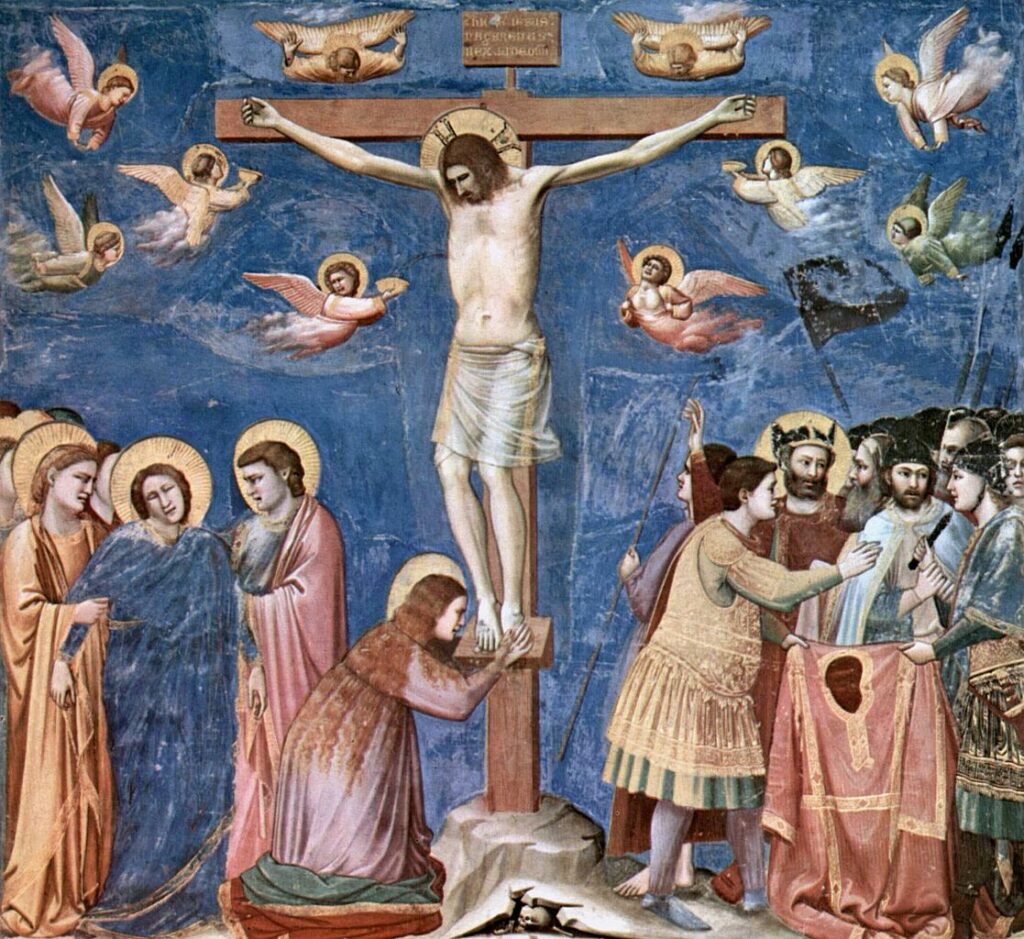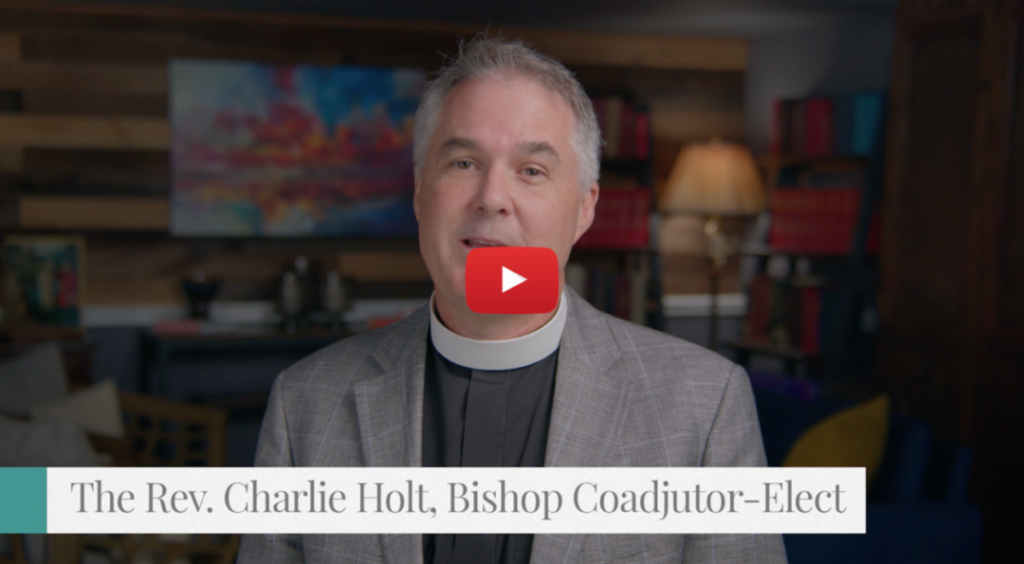“And now I am no longer in the world, but they are in the world, and I am coming to you. Holy Father, protect them in your name that you have given me, so that they may be one, as we are one.” John 17:11
Do you want to understand what truly matters to people? Pay attention to their prayers. In John 17, Jesus shares his high priestly prayer, revealing his deep concerns and care for us as he intervenes on our behalf before God. At the heart of Jesus’ plea for his church is a desire for unity, as exemplified by the oneness of the Trinity.

Christians call this unity communion, which means “oneness with.” We are brought into harmony through the mystical and sacred union with God achieved by Jesus’ sacramental body and blood. This profound connection bears witness to the union between Jesus and the Father, affirming his divine purpose to bring life to the world. Jesus repeats his plea for unity among his followers throughout the prayer, emphasizing his desire for all to be one with God and each other, just as he and the Father are one. This unity is vital, enabling the world to see and believe in God through Jesus. (John 17:21)
Our world is rife with conflict, violence, prejudice, and division, leading to a breakdown of human connectedness and the resulting pain and damage. Unfortunately, even within the church, we often reflect the same worldly tribalist tendencies and behaviors without introspection or remorse. This goes against the Lord’s vision for the church and presents a poor example to those outside the faith who long for a more compassionate and united way of being human amidst the extreme factionalism of our culture.
The cheap and easy communication tools afforded to us by social media sadly seem to do more tearing apart the body of Christ than uniting. Harsh and biting voices are given a platform with amplification making their words carry more weight than they should.
I recently heard an excellent talk by John Meacham about the role of Christian leaders in civil society. “If the American Republic is going to long endure. It will endure not least because of an Anglican Sensibility. The air you and I breathe theologically is one of complexity and tolerance and having the courage to admit you don’t know everything.”
Demonstrating humility in this manner reflects a profound comprehension that none of us possess the complete picture, and we are all capable of making mistakes and surrendering to our negative tendencies.
So Meacham challenged us as Christian leaders:
“Here’s what you all can do stop lamenting and start leading. We know things are bad. We’ve had an insurrection; we get it. Okay, things are so terrible, yes, they’re terrible. Why? Because people tend to be terrible. Okay, this is your job, for God’s sake; I mean, y’all are dealing with first principles. What are you commissioned to do? You’re commissioned to forgive sins, and you’re surprised that the world is sinful?… If everybody loved their neighbor, guess what? Jesus wouldn’t have had to command it!”
John Meacham, Episcopal Parish Network Keynote 2023. https://www.youtube.com/watch?v=AY_KDHGD2hg
The essence of Christian leadership is to remind ourselves of the Gospel’s power to save sinners through God’s grace. In and through gracious respect for the dignity of every human being, we are empowered not to harm each other despite our propensity to sin. Leadership requires bringing this message of God’s redemptive claim of our lives to our collective hearts and minds. As Meacham would challenge: “In this time in which we live, the church has a huge role to play to help our democracy and our relationships with one another to walk this path.”
As the church, our duty and mission have always been to fulfill this responsibility. We are agents of the gospel and ambassadors of Christ to commissioned for the redemption of humanity.
In Ephesians, the Apostle Paul refers to “mystery” to explain how God works through the church to reveal His plan for the world. (Ephesians 3) Paul then transitions into a prayer for the unfathomable love of God, asking for spiritual strength and for Jesus Christ to dwell within our hearts. As a result, we come to understand God’s vast and extraordinary love.
A new and wonderful phenomenon is emerging in the world through the power of God. The death and resurrection of Jesus Christ are uniting people from different cultures, languages, and backgrounds. Former enemies are finding reconciliation, while Jews and Gentiles are discovering peace with God through the cross. Laws no longer govern our relationships but by mercy and grace. The blood shed on the cross gives us all access to God; through this entryway, we are baptized into a new identity and humanity. We become a unified structure, citizens and members of the same household, and a spiritual temple for God’s spirit to reside in.
Paul contemplates the profound advantages of the Gospel and offers a prayer for the church, recognizing that its influence extends beyond itself. The Gospel is of immense importance to the world, as it brings about the most crucial outcome of Gospel ministry: unity with God and among people. As the barriers of hostility are dismantled, and the new community of believers comes into being, the Holy Spirit’s radiance illuminates the living temple that rests upon the cornerstone of Jesus Christ and the foundation of the apostles. According to the divine plan, this disclosure signifies the unification of all things in heaven and on earth under a single leader, ultimately allowing God to reign supreme through the one head, Jesus Christ. (See Ephesians 1:10, 22, 23)
As followers of Christ, our unity in Him holds immense importance in the spiritual world as we fight against Satan and the forces of evil. We arm ourselves with spiritual weapons and armor to engage in this battle. Even when it may seem like the Gospel is not making a difference, we find solace in Jesus Christ being the ultimate authority. It’s crucial to remember that our struggle is not against flesh and blood, a fact often overlooked in our current political disputes within the church.
O God the Father of our Lord Jesus Christ, our only Savior,
(Book of Common Prayer, p. 818)
The Prince of Peace: Give us grace seriously to lay to heart the
Great dangers we are in by our unhappy divisions; take away
all hatred and prejudice, and whatever else may hinder us
from godly union and concord; that, as there is but one Body
and one Spirit, one hope of our calling, one Lord, one Faith,
one Baptism, one God and Father of us all, so we may be all
of one heart and of one soul, united in one holy bond of truth
and peace, of faith and charity, and may with one mind and
one mouth glorify thee; through Jesus Christ our Lord.
Amen.



